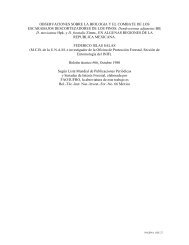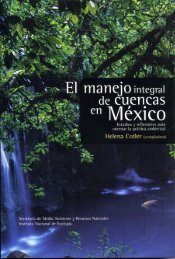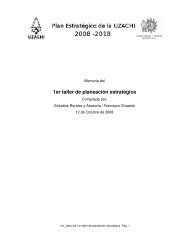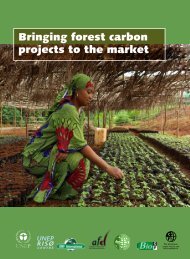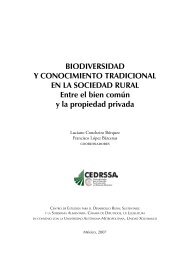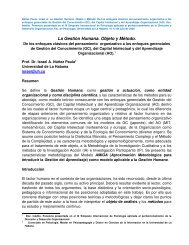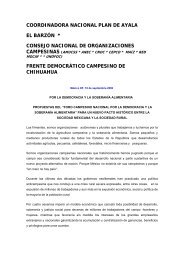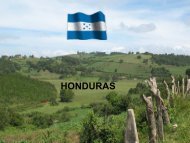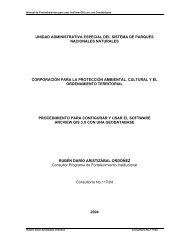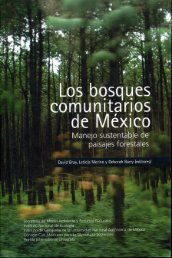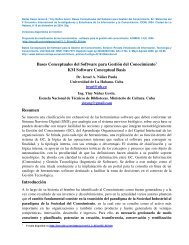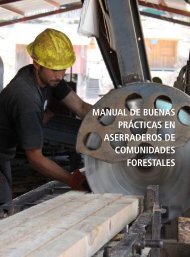STATE OF THE WORLD's INDIGENOUs PEOpLEs - CINU
STATE OF THE WORLD's INDIGENOUs PEOpLEs - CINU
STATE OF THE WORLD's INDIGENOUs PEOpLEs - CINU
- No tags were found...
Create successful ePaper yourself
Turn your PDF publications into a flip-book with our unique Google optimized e-Paper software.
EMBARGOED UNTIL 14 January 2010<strong>STATE</strong> <strong>OF</strong> <strong>THE</strong> WORLD’S INDIGENOUS PEOPLESNot for distributionsame coin.” 2 This echoes a statement on poverty adopted in May 2001 by theCommittee on Economic, Social and Cultural Rights, which recognizes that povertyconstitutes a denial of human rights and defines poverty as a human conditioncharacterized by the deprivation of the resources, capabilities, choices, securityand power necessary for the enjoyment of an adequate standard of living andother civil, cultural, economic, political and social rights. 3sustainable developmentand self-determinationare two sides of the samecoinThis chapter presents an overview of issues linked to modern economicdevelopment and the impoverishment of indigenous peoples, the status andtrends in the practice of traditional occupations, indicators relevant to indigenouspeoples’ well-being and sustainable development, and corporate globalizationand sustainability of indigenous communities. It also contains some corefindings of selected thematic or country case studies relevant to the subject ofindigenous peoples and development.“If a villager had cut trees in this place, the elders would havefined them so much. But because it is the Government, they willnot dare say anything”. — a villager, Cambodia 4New threats of globalizationThe global ascendancy of neo-liberal economics and the entrenchment ofcorporate power in international and national affairs have deepened inequalitiesbetween and within nations and largely undermined efforts toward sustainabledevelopment. Based on a belief that the market should be the organizing principlefor social, political and economic decisions, policy makers promoted privatizationof state activities and an increased role for the free market, flexibility in labourmarkets, and trade liberalization. The benefits of these policies frequently fail toreach the indigenous peoples of the world, who acutely feel their costs, such asenvironmental degradation and loss of traditional lands and territories.“At present, villages do not have serious problems of landuse. But the next generation of indigenous peoples will nothave enough land for their field and paddy rice agriculture”.— a farmer, Cambodia 5Since the 1980s there has been a global trend to liberalize Mining Codes. This isaimed at increasing foreign investment into the extractives sector and providingincreased assurance of profit on investment for mainly British, Canadian, US2Statement made at the 19th Special Session of the United Nations General Assembly 1997on Earth Summit + 5. Reproduced in Posey (2000).3Committee on Economic, Social and Cultural Rights (2001). Statement on Substantive IssuesArising in the Implementation of the International Covenant on Economic, Social andCultural Rights: Poverty and the International Covenant on Economic, Social and CulturalRights. Adopted on 4 May 2001.4Asian Development Bank (2002)5Asian Development Bank (2002).16 | CHAPTER I




